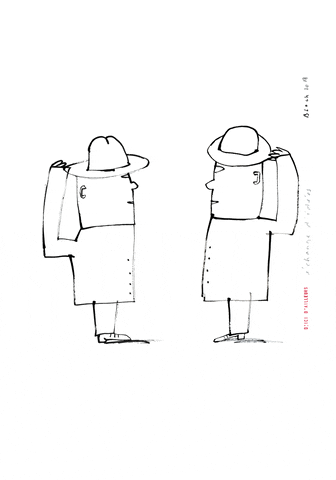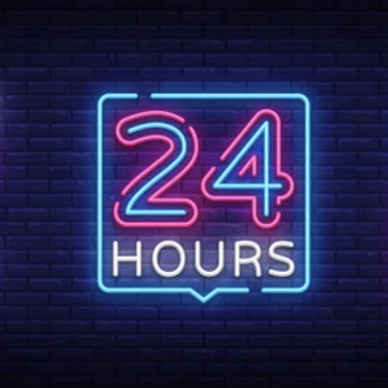

Volunteer mentoring program experience
source link: https://uxplanet.org/volunteer-mentoring-program-experience-ba2418a4024a
Go to the source link to view the article. You can view the picture content, updated content and better typesetting reading experience. If the link is broken, please click the button below to view the snapshot at that time.
Volunteer mentoring program experience
Everyone has their own story
There may be problems and some questions in our minds about our colleagues, our manager, the team we manage, ourselves and our career journey in general. Our experience at work and psychological well-being are invaluable. At this point, the communication we establish with the environment and ourselves, our perspective and approach to our surroundings determine the flow of our daily life.
Based on my identity as a psychologist, being an experience person, one-on-one interviews experience and my communication studies so far, I started a volunteer program. I conducted a total of 23 hours of one-on-one interviews with 8 people out of 76 applicants for about 3 months.
In this article, I wanted to explain the whole process, be inspired to communicate more and share some outputs.
Enjoy reading! ✨
What was the program like?
It was a program in which we focusedon people and their communication at work, in professional life, process management and development in this direction, rather than meetings with the content of development in professional life. I focused on the management of issues and processes in mind, not on output or knowledge related issues such as UX / UI / Research portfolio, screens, research methods.
I hardly received the feedback that it is useful to make me say, “Yes, there are some people around who I can talk about these issues”. We all have topics worth talking about. It can be difficult to talk about these things with a colleague from work. Some topics are taboo and not talked about. However, some things don’t get better without sharing them. People realize when they share. As they listen and tell, they find themselves.
I call the name of the program mentoring, but mentoring, consulting, coaching etc. it doesn’t matter. I don’t know exactly what it should be called, actually, it doesn’t really matter to me.

Where did the idea come from?
Communication is important. I was aware of the necessity of a study on communication and process management from my circle and the conversations I was involved in. In addition, the satisfaction of being able to benefit people is different for me.
It is very nice to be able to focus on psychological well-being and contribute to making things better, rather than directly on professional and technical development.

At the same time, in these meetings where we talk about human and business relations I sometimes force myself, I stop and think about how I should think and act in different situations, I develop these muscles and myself. The fact that it is a program based on human relations rather than talking about a UX process, talking about how the way of doing business can be improved with communicative parts, and the moral satisfaction of the doing that was my motivation to start this program. We approached career development from a personal point of view, not business specific. Although not directly, of course, it indirectly contributed to career development.
How was the participant selection process?
I announced the applications through the post I shared on LinkedIn and in the Slack communities. 76 applications received.
Kerem Can Demirtaş on LinkedIn: Mentorluk programı
Mentorluk programı duyurusu 🎉 (ücretsiz) Şirkette çalışma arkadaşlarımızla, yöneticimizle, yönettiğimiz ekiple…
I focused on people, communication and process-oriented expectations, not those with technical development expectations. I examined the descriptions in the form and profiles in detail. By prioritizing on Excel, I progressed by reducing the number first. I wanted to continue with the people I thought I could benefit the most. We planned the meetings once a month or once a fortnight, depending on the topics.
I had two main criteria for selection:
1- Working in any company actively and full time
2- Being open to communication, development, feedback and criticism
I sent a detailed and long message from LinkedIn or Slack to those I could not include in the program, explaining the situation, and I received many thank you messages just because of this. Although it may seem like a good thing at first glance, it is actually sad in a way. We are happy to experience a situation where communication and processes should be in the usual flow. Likewise, I am happy when I receive a negative but detailed response from an application. That’s life :)
Nilay Ocak met with 4 people who took the initiative and couldn’t make it to my list. From here, I send my thanks to her again :) ❤️
Participants’ evaluations
At the end of our interviews, I asked the participants to evaluate both the process and me. Although some feedbacks are long, I have included some of them here for those who are interested.
“As I speak, I understand. It makes sense as I understand it, and I took strength from you as if I had reached the trigger I needed. This helped me to express the problems and needs more clearly.”
“Nobody gives you a guide when you get a job, and you can’t understand who to consult and what to talk to and what is acceptable or not. At this point, I feel lucky to be able to benefit from your mentorship.”
“The most motivating thing for me to fill out the form to participate in this study with you was that we both worked as solo user researcher in a technology company. You shared your experiences with me on the advantages and challenges this brings. It was an experience that helped me to understand my job, its scope and the sectoral reflection of my job.”
“We talk about ideas on issues such as increasing the research culture within the company and the accessibility of insights, so the steps I took with the notes I took were reflected. Frankly, I am happy for that.”
“Your suggestions and ideas have been invaluable to me and have really changed my perspective. I can say that it has positively affected my career life.”
“After our meetings, my self-confidence increased and my behavior at work and my perspective on events changed. The inner transformation I went through was also reflected on the outside.”
“As a UX researcher with relatively little experience in the profession, but starting to understand the dynamics of the industry, I was thinking that I was at a dead end about the issues that I could not research and learn, but rather get ideas from experience. In the interviews we had, I learned the points that I needed to improve in communication with other team members in order to strengthen my own position. I found enough time between the two meetings to apply the perspectives I gained from the interviews in my work and to observe myself, and being able to share this in the next session encouraged me to apply what I learned. One of the most important achievements I have gained in this process has been about the internal and external sources of the sense of success related to my work and the ways to develop them. Again, the steps I learned in this sense made my view of myself more objective and made my researcher identity more full and secure. Therefore, I think that what I learned in the process contributed to my feeling more competent in this profession and to reflecting myself better in the business environment.”
So, what about the result?
- I have seen again how necessary it is to communicate with people and talk about their own work area, and now I am quite sure. This communication need is indeed much, much more than it seems, I can say it with peace of mind.
- Whatever you are experiencing at that moment, you are not the one experiencing it for the first time, be aware of it. Try getting support, contacting, and pushing things. The “fault” may not always be yours.
- Hardworking people want to produce, they want to work, but somehow their productivity is restricted. There are many reasons for this and it is not known how to follow the right path under these adverse conditions. People are affected positively or negatively by the way the team members communicate with each other, the way they do business, maybe even the emoji they use or don’t use while sending a message.
- Talk to people. No matter who you are, sharing our experiences and feelings is more beneficial than being stuck inside. Of course, it is necessary to carefully choose the people to whom you will have this conversation.
- Managers are really influential in the lives of their employees. If you are a manager, be aware of things that you are not aware of, at least give it a try. You shouldn’t be this far from the experiences and feelings of the people you manage. Talk. Ask. Listen, listen, listen.
- Be aware, be proactive and try to capture events, people, flows. Don’t be hard on yourself at the first negativity, believe me you can’t always be the worst.
“I think like this” :)
You can reach me on this or any other topic by just saying hi on LinkedIn at any time.



Recommend
About Joyk
Aggregate valuable and interesting links.
Joyk means Joy of geeK